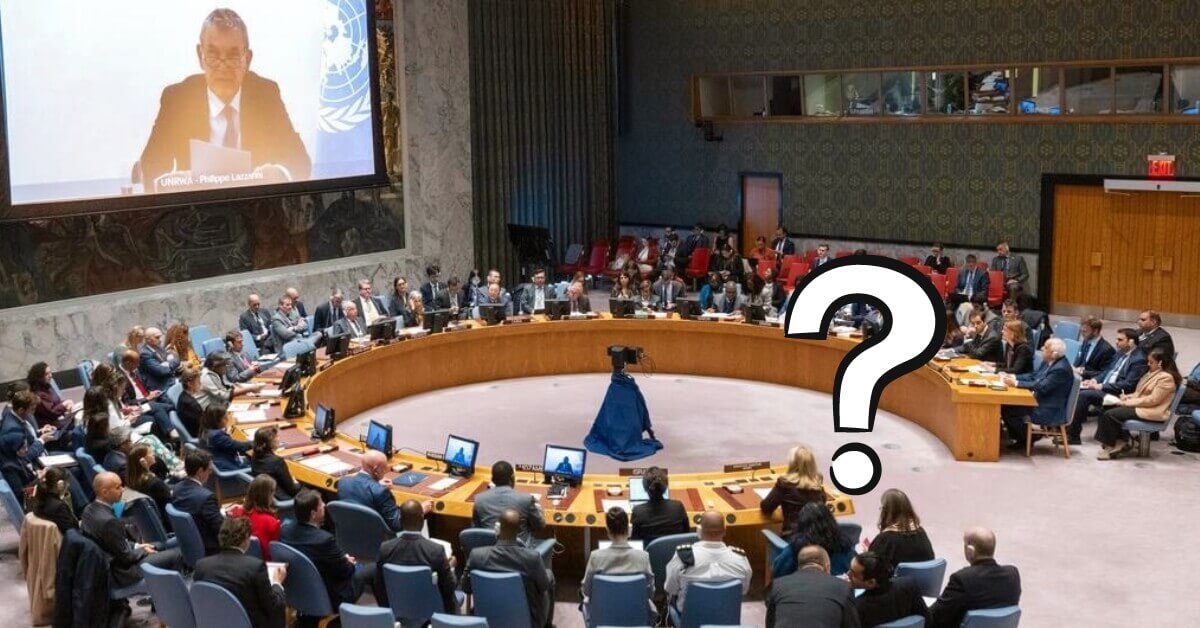The Middle Eastern war has rattled the whole world.
Everyone is calling for a ceasefire. But it was recently revealed that the U.S. vetoed a vote for the same at the U.N.
Now, everyone is asking why the United States did something so shocking. It’s all because of one group’s actions.
On December 8, 2023, U.S. representative Robert A. Wood vetoed a U.N. resolution calling for an immediate ceasefire in the Gaza Strip. He stated it would leave Hamas in place to regroup and repeat actions seen on October 7. A ‘no’ vote completely stops any action on the measure put before the council.
Why Did the U.S. Choose to Veto the U.N. Ceasefire Vote for Gaza?
According to the N.Y. Times, on December 8, 2023, the United States vetoed a United Nations resolution that called for an immediate cease-fire in the Gaza Strip.
The resolution had widespread support, including from the U.N. secretary-general, esteemed António Guterres, and most Security Council members concerned about the humanitarian crisis in Gaza.
However, as one of the five permanent Security Council members, the United States blocked the resolution. They argued that Israel had the right to defend itself against Hamas attacks.
The vote resulted in 13 in favor and one against (the United States). Britain abstained, and some key U.S. allies like France voted for a cease-fire.
Robert A. Wood, representing the United States, stated that the resolution for an unconditional and immediate cease-fire was considered unrealistic and dangerous, as it would potentially leave Hamas in place, allowing them to regroup and repeat actions seen on October 7.
The failed resolution coincided with reports from the United Nations that they were facing difficulties delivering essential goods like food, medicine, and cooking gas to desperate civilians who had sought refuge in shelters and tent cities after two months of war in Gaza.
Before the veto, Mr. Wood stated that the United States had attempted to negotiate changes to the agreement, but most of their recommendations were disregarded.
These recommendations included condemning Hamas’s attacks on Israel on October 7 and endorsing Israel’s right to self-defense. However, Israel had been under pressure from the United Nations to halt the ongoing conflict.
Secretary-General Mr. Guterres invoked Article 99, an infrequently used rule, to bring attention to the situation, citing the suffering of Palestinians in Gaza and escalating conflicts in the West Bank, Lebanon, Syria, Iraq, and Yemen.
Furthermore, Israel requested approval from the U.S. State Department for an order of 45,000 rounds of ammunition for specific tank types used in Gaza.
According to officials with knowledge of the request, the estimated value of this order exceeded $500 million.
What Does a Veto Power Mean?
The power of veto, granted to the five permanent members of the United Nations Security Council (France, the United Kingdom, China, the United States of America, and Russia), is a significant authority outlined in the UN Charter’s Article 27.
A ‘no’ vote from any of the Council’s five permanent member nations completely stops any action on the measure put before it.
It’s important to note that abstention from voting by a member does not prevent the adoption of a draft resolution, and procedural votes do not factor into the veto power’s usage.
This power has sparked debates, with critics deeming it undemocratic and a potential catalyst for conflict. At the same time, supporters argue that it serves as a tool to maintain global stability and counterbalance U.S. dominance.
Over the years, the USSR/Russia has exercised this power the most, casting 143 vetoes, nearly half of which were recorded. The United States, in contrast, cast its first of 83 vetoes in 1970, with three vetoes since 2011, all concerning Israel/Palestine issues.
The United Kingdom has employed the veto 32 times, with the initial instance occurring during the Suez Crisis in 1956. France used the veto for the first time in 1946, addressing the Spanish Question, and has a total of 18 vetoes to its name.
China has exercised the veto 16 times. The Republic of China (ROC) cast the first veto on December 14, 1955, with the People’s Republic of China assuming this role after succeeding the ROC as a permanent member on October 25, 1971.
What do you think about the U.S. vetoing the ceasefire vote? Is the reason given adequate?
Let us know your thoughts in the comments below.
Source: N.Y. Times

